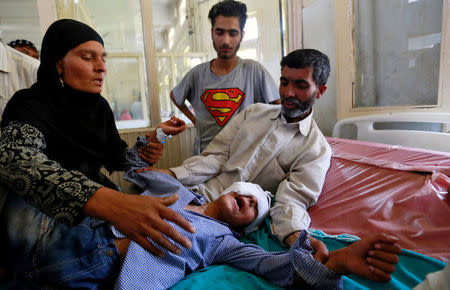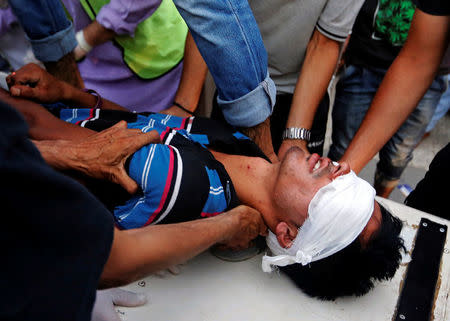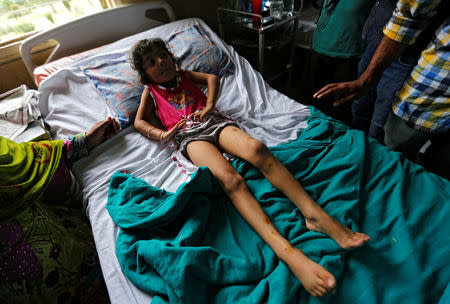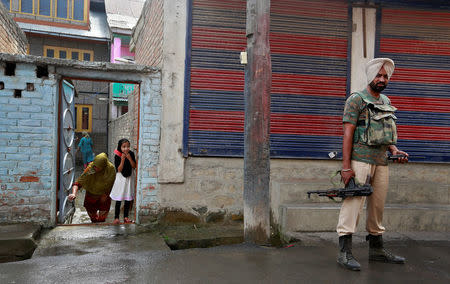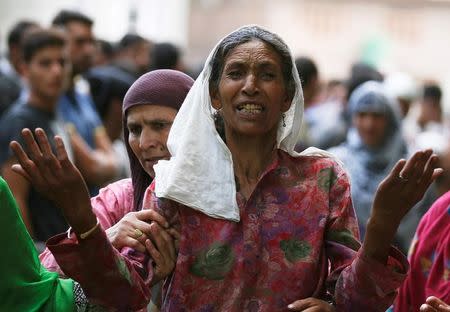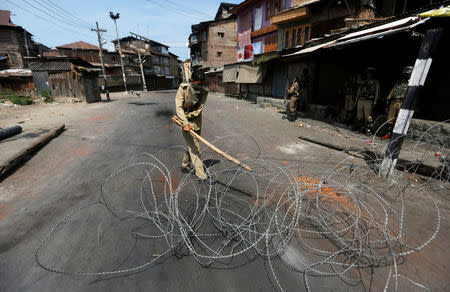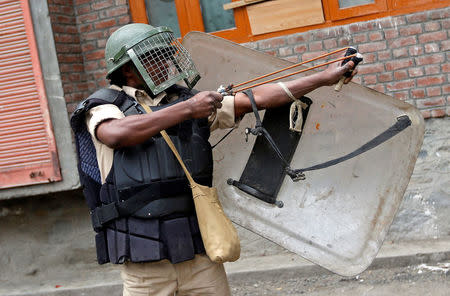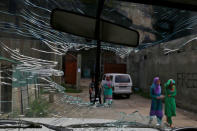Victims of clashes overwhelm hospital in Indian Kashmir
By Cathal McNaughton and Fayaz Bukhari SRINAGAR, India (Reuters) - More than 40 days of clashes between protesters and security forces have overwhelmed the main hospital in Indian-administered Kashmir, where some patients with severe injuries said they had been beaten in their homes by troops. House-to-house searches continued on Friday, authorities said, for suspected ringleader's of street protests set off by the killing on July 8 of a popular field commander of a Pakistan-based separatist group. At least 65 people have been killed and 6,000 injured in the ensuing clashes, many of them wounded by shotgun rounds fired by security forces enforcing a curfew across the Muslim-majority region. Pictures taken by a Reuters photographer at Srinagar's main SMHS Hospital on Thursday showed men with wounds across their backs and buttocks they said had been caused by beatings. Another showed a crying boy, his head swathed in bandages, being comforted by his family, who said he had been wounded by shotgun pellets. The Indian army has apologised for the death in custody of Shabir Ahmad Mangoo, a 30-year-old college lecturer. The commander of India's Northern Army denounced the beatings and ordered an inquiry. "These actions are absolutely not sanctioned. These actions are absolutely not tolerated," Lieutenant General DS Hooda told a news conference in Srinagar on Friday. India's security laws grant wide discretion to the armed forces in "disturbed" areas such as Kashmir. Human rights activists say those responsible for excessive violence are rarely brought to justice. EXHAUSTED DOCTORS Hospital doctors were exhausted, with one saying they had performed more eye operations in the past month than they had over the last three years. "We are in physical and mental stress," said Nisarul Hassan, senior consultant at SMHS Hospital who was forced to use an ambulance to get home. Dozens of volunteers received the injured at the hospital as ambulances brought them in from rural areas. Paramedics and ambulance drivers said government forces attacked them on the way. The curfew restricts movement, severely disrupting daily life. "India and Pakistan are fighting over my homeland but in the end it is only our blood that they manage to secure," said Faizal Wani, 24, whose father was being treated for pellet wounds suffered in the clashes. Another doctor said patients had been brought in with abdominal injuries from rifle bullets. "Our operating theatres are working non-stop," the doctor told Reuters. Troops have resorted to firing rifles and shotguns to quell stone-throwing protests sparked by the death of Burhan Wani, a field commander of the Hizbul Mujahideen separatist group. India's Central Reserve Police Force, which deploys a large contingent of paramilitaries in Kashmir, told a regional court that more than 100 people had been partly or completely blinded by shotgun pellets. Kashmir is at the centre of a decades-old rivalry between India and Pakistan, which rules a northwestern section of the divided region, and backed an insurgency in the late 1980s and 1990s that Indian security forces largely crushed. A U.N. human rights official has expressed "deep regret" at the failure of both India and Pakistan to grant access to the separate parts of Kashmir that each runs to investigate allegations of serious human rights violations. (Additional reporting by Danish Ismail; Writing by Rupam Jain; Editing by Douglas Busvine and Janet Lawrence)

 Yahoo News
Yahoo News 